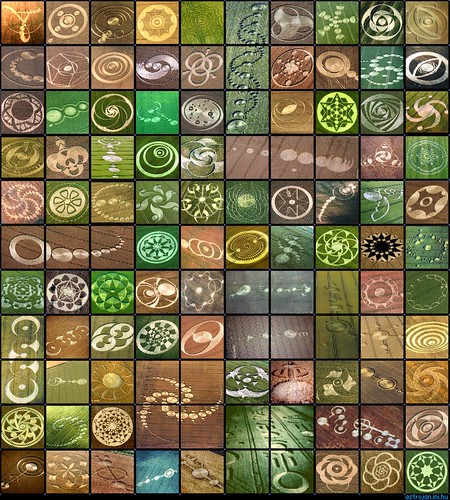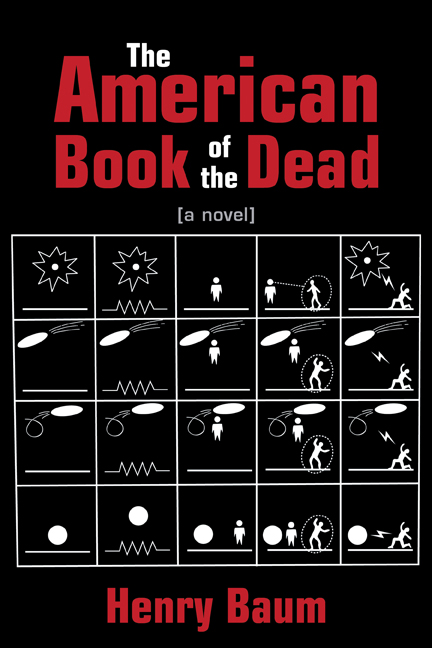
There are plenty of ideas that people will be skeptical about, but if you come away from this book thinking about reality in the same way as before then, frankly, there’s something wrong with you. I can’t even begin to summarize all the bits of wisdom in this book. Pinchbeck’s first book Breaking Open the Head broke open my head. This book did it again.
The book is a very serious look at ideas that are mainly ridiculed or ignored: UFOs, Global Warming, crop circles, mysticism. These are all issues that have major implications for the future of humanity. UFOs, are you kidding me? The fact that such a critical issue has been banished to the tabloids is evidence alone of humanity’s blindness and fear of new ideas. The "What if" scenario is reason enough for this issue to be explored with seriousness and sobriety and not cast off, as it is by intellectuals, with, "I don’t believe in flying saucers." The "Flying Spaghetti Monster" of the left is a conservative invention. Tossing away important ideas with a laugh. Snark is the enemy of sincerity. Because wishy-washy New Agers have taken over certain mystical ideas, they’ve lost their validity. It’s like saying Christ’s message is B.S. because Pat Robertson is evil. I hear people react to the actions of the religious right by saying, "See, that’s why I’m an atheist," as if one has anything to do with the other. Global Warming is part of the same fabric. People see it as a fantasy, or ignore it outright, instead of facing the obvious.
The book doesn’t propose a new religion. Pinchbeck is not painting himself as a guru, only as a person on a personal exploration. I trust what he has to say. I love Pinchbeck’s point of view because it’s similar to my own--a cynical city boy who had no use for spirituality. Punk rock had taught me nihilism. I come from a family of doctor-headed people where science was the answer to religion. Punk rock also taught me to go against convention. The conventional wisdom today is that science is progress and spirituality is primitive. Also that they’re mutually exclusive. Science has created the capacity to kill along with the capacity to heal. Religion is the same. Both are imperfect systems of thought, or at least they are used incorrectly, an extension of humanity’s imperfections. There has to be another answer. This book tries to uncover that.
Sometimes I wonder why I’m going down this road. So far I’ve written about celebrity, but I think these issues are two sides of the same coin. I’ve written about targeting superficiality and materialism. Fame is killing people’s self-worth: if you’re not famous, you’re nothing. Fame teaches people to worship rather than look within themselves. It’s dangerous and I don’t think I’m taking it too far. Scientific materialism is just an extension of that--that science is the answer to everything. A Theory of Everything can try to come up with the how but it won’t come up with the why. 2012 is like a Theory of Everything Else. I deeply recommend it.
More: an interview with Pinchbeck on the RU Sirius radio show. A lot more to listen to on that site as well.
Here’s my new desktop. A few years back I had been obsessed with all of these ideas in preparation for writing a novel, and then promptly dropped them. I’m very glad to be getting back to it. Click on the picture for a much larger image:



9 comments:
Nice picture. You have got a different thought process than normal humans.
I think there are so many worries in our daily lives that people push UFOs out of their heads "for the moment" but then that moment ends up being years, and pretty soon they start beleiving UFOs are hokum again. I do believe there is a phenomenon and it only gets more intriguing the more research, investigation and evidence is uncovered.
-S
i agree with drum... maybe you should focus more on Bigfoot or the Loch Ness monster - something that is more probable to truth.
E.D., if you believe in widespread black ops projects, you’re not that far off from believing in ET UFOs. There’s more proof than you are allowing. Crop circles and alien abductions are a phenomenon. That much is true. Whether it’s human or non-human, thousands of people are reporting very similar experiences. The same goes for lights in the sky. The phenomenon is the evidence, even without nuts and bolts proof. Something is happening. Even on the level of collective power of suggestion or if crop circles are an ambitious art project, it’s worth studying. It could be that a non-human or super-human intelligence is working through those crop circle artists. A crazy idea, maybe, but it’s a big universe and we’ve explored almost none of it. I like what Jacque Vallee has to say--that UFOs are a phenomenon so beyond our consciousness that we can only see it as a form of technology. I don’t know what books you’re reading but the more I read about it, the more likely it seems that it’s real.
I don’t really want to argue this much further. Your skepticism is a belief, you know that, right? You have a preconceived notion and you look for evidence to support it, like any faith-based system. About the black ops: if the military is responsible for every last UFO encounter, then, yes, that is as fantastical as UFOs. The phenomenon is the proof, I stick by that. Actually needing a wing or a busted lightbulb from a UFO is not really looking deep enough. The issue is complicated enough that whatever it is can choose how much to be seen. There are pages and pages of testimony from credible people. Discounting all of them is mysterious in itself.
By the way, everyone should also read Kabuki’s acid trip.
I’m not saying that the phenomenon is the only proof that’s necessary. But it is proof that something’s happening. I don’t buy that even a crashed UFO would solve every dynamic of this issue. I’ll take back the skepticism is a belief part, but I still think it is powered by a preconceived notion of what you want to be true--what you already believe to be true. On a deep unconscious level most people don’t want UFOs to be real--it’s too terrifying, it blows everything apart. Skepticism is a safer route.
Oh, and the testimonials of people who have seen UFOs is a bit different than a form of mass belief. These are witnesses of evidence. At the same time, people used to see apparitions of the Virgin Mary, now they see UFOs. I never said it wasn’t complicated.
Just got back from a trip up the coast. Got into the car not knowing where we were going and landed at Carpinteria, CA. A nice time. It gave me a lot of time to think about these things. Thanks for that last comment. It’s the least aggressively contrarian. Still, I think your language such as "cling to faith" points towards a prejudice towards faith. Faith and critical thinking don’t have to be in separate camps, even if faith has been misused by zealots. I would say everything comes from faith: even scientific experiment. The faith that an experiment will run the same way twice. Consciousness is more binding than you’re giving credit. This might be a "faith" but there’s a lot more rigorous thought on these subjects than you’re acknowledging. The world is built on theory--any philosophy is a theory, the Big Bang is a theory. To believe in it takes an act of faith. Scientific theories are continually being rewritten, meaning what we believe to be true at present is an act of faith. Like it or not, faith is part of being human.
I don’t know why this became an argument about the scientific method. No one’s talking about discarding it. But for issues that are so beyond our current scientific comprehension, or scientific resources, we need to be open to alternative ideas. Science has gone forward largely due to great leaps of imagination, shocking the current system. I read about Richard Feynman (I’m pretty sure) who talked about stepping onto a bus and suddenly being hit with the answer to a scientific formula. Even he talked about it being a sort of magical process. Look at art. Can you explain where artistic inspiration comes from? No, not verifiable. The conception that the scientific method is the only avenue to truth is an extremist point of view. I could go off on this subject forever. I’ll stop. My daughter wants to play with me.
Post a Comment